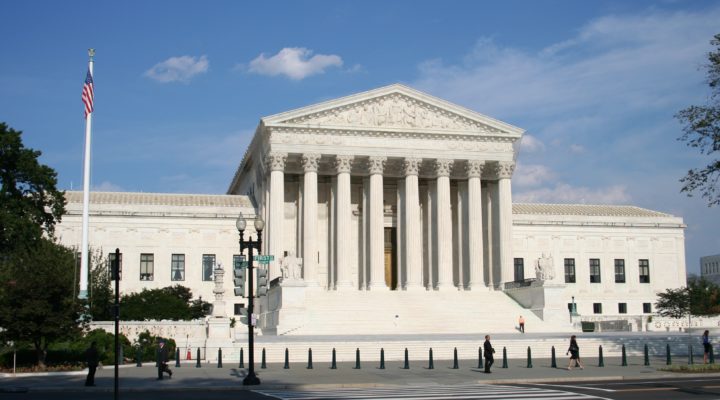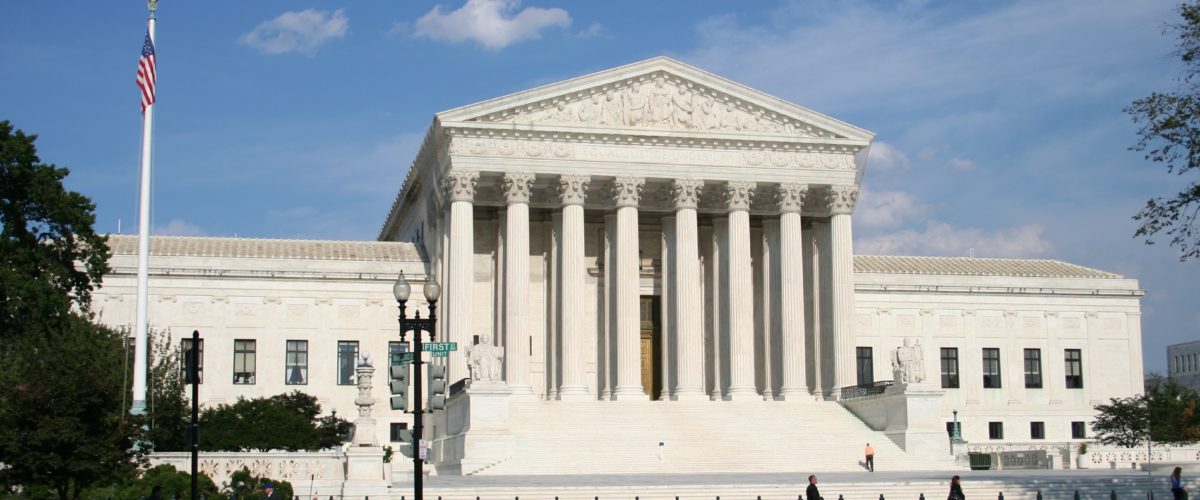The U.S. Supreme Court sidestepped the constitutional question May 16 of whether Obamacare’s contraceptive mandate substantially burdens the rights of certain faith-based organizations to exercise their religion, sending seven cases back to lower courts after both sides conceded there may be room for compromise.
Judgments in lawsuits filed by groups ranging from an order of Catholic nuns to colleges and universities affiliated with Southern Baptist state conventions to the Southern Baptist Convention agency that insures ministers, churches and ministry organizations across the country were vacated and remanded for reconsideration by the United States Courts of Appeals for the Third, Fifth, 10th and D. C. Circuits.
After hearing oral arguments in March about whether an opt-out for groups like religious colleges and social service agencies that don’t qualify for automatic exemption from the contraceptive mandate afforded to churches and denominational offices is the least-restrictive means of achieving a compelling state interest, the eight Supreme Court justices asked both the government and the groups challenging Obamacare more questions.
In supplemental briefs submitted to the court, the religious groups said they would not object to their insurance companies providing contraceptive coverage to their employees as long as they did not have to do anything to their own insurance plans to help make it happen. The government said procedures could be modified to meet its goal of seamlessly offering cost-free contraceptive coverage in keeping with a court order.
In light of those responses, a court that appeared divided and possibly headed toward a 4-4 deadlock said it isn’t necessary for them to address the central constitutional issues until both sides have had a chance to iron out an approach that accommodates religious exercise while serving the government’s interest of ensuring that women covered by employee health care plans “receive full and equal health coverage,” including reproductive health.
The Becket Fund for Religious Liberty, which represents parties including the Catholic order Little Sisters of the Poor, claimed the Supreme Court decision as a win.
“The court has accepted the government’s concession that it can get drugs to people without using the Little Sisters,” said Becket Fund senior counsel Mark Rienzi. “The court has eliminated all of the bad decisions from the lower courts, and the court has forbidden the government from fining the Little Sisters even though they are refusing to bow to the government’s will. It is only a matter of time before the lower courts make this victory permanent.”
Others criticized it as a “non-decision” that prolongs the legal battle. Barry Lynn of Americans United for Separation of Church and State said the Supreme Court “punted this case so hard it flew into next year” and puts a vital component of women’s health back in limbo.
“No other medication, medical procedure or medical device has been subject to this level of scrutiny by the Supreme Court,” said Lynn, an ordained minister in the United Church of Christ. “These never-ending legal challenges have given religious groups far too much power over the medical and reproductive decisions of their students and staff. It’s time to break that grip.”
O.S. Hawkins, president of GuideStone Financial Resources of the Southern Baptist Convention, which is exempt from the contraceptive mandate but filed one of the lawsuits on behalf of many ministries it insures that are not, posted on Twitter calling the ruling “great news” about “protecting religious freedom.”
Unlike the nuns, whose Catholic teaching rejects the use of any artificial birth control, evangelical organizations including Truett-McConnell College in Georgia, East Texas Baptist University, Houston Baptist University, Oklahoma Baptist University and Reaching Souls International in Oklahoma City object only to certain forms, like intrauterine devices and emergency or “morning after” birth control pills that take effect after conception, which they regard as abortifacients.
Russell Moore, president of the SBC Ethics and Religious Liberty Commission, expressed mixed feelings about the decision.
“In some ways, this is something we ought to celebrate, that the court did take into account these basic principles of religious liberty,” Moore said in a video message recorded outside the Supreme Court building. “In other ways, the very fact that we had to have this argument ought to remind us of how far we have to go in persuading our neighbors that soul freedom is not a government grant; soul freedom is a right given by God.”
The Baptist Joint Committee for Religious Liberty filed a brief in the case supporting the government’s effort to accommodate religion in the Affordable Care Act.
“Today’s decision does not resolve the controversy, nor will it necessarily change the results in the lower courts that previously ruled in favor of the government,” said Holly Hollman, general counsel of the Baptist Joint Committee. “It does, however, allow the parties to further refine their arguments about notice requirements and how employees will be covered.”



